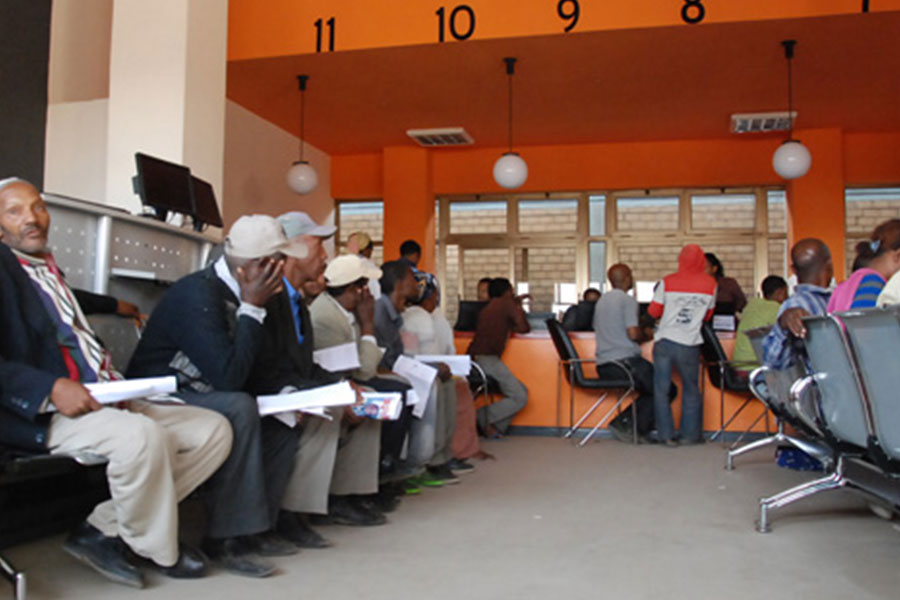
Radar | Feb 03,2024
Oct 12 , 2019
By SELAMAWIT MENGESAHA ( FORTUNE STAFF WRITER )
A new bill that will enable the Ministry of Urban Development & Construction to audit the construction of any public project is reaching the final stage for legislation.
The audit aims at inspecting construction projects from time to budget consumption to ensure whether the projects are in line with the project plan. The audit also includes overseeing the process of hiring contractors and consultants. The new system will audit the quality of inputs, competency of contractors, and quality of construction tools on top of a financial audit.
Drafted by the Ministry, the law is expected to be sent to the Council of Ministers this November for final approval. The bill has been in the making for the last two years but was delayed due to the merger of the ministries of Construction and Urban Development. It is currently under review by the Office of the Attorney General before it gets sent to the Council.
The audit will be conducted on the projects implemented by the federal government, the two city administrations, jointly by the federal and regional governments, individuals and organizations in the construction sector, as well as projects launched in a joint venture between the government and the private sector.
Government-financed projects implemented by private organizations and projects that use loans from the Commercial Bank of Ethiopia and the Development Bank of Ethiopia are also subject to the audit. Audits can also be conducted on private construction projects in Addis Abeba and Dire Dawa upon the request of project owners.
The audit aims at saving time and money spent due to project delays, according to Abdu Jemal, head of Construction Sector Competitiveness & Improvement at the Ministry, which was only conducting financial audits of construction projects. The previous audit did not audit the quality of the technology and equipment used for construction.
"Since construction projects involve several entities, the audit is a crucial tool for keeping everything on track and on budget," he said.
The audit team is composed of representatives from the owner of the project and project contractor. Representatives of the project owner may include staff from internal audit, finance and project management. Project contractor team members may include the project executive and project managers, project controllers and finance.
Construction professionals will collect information about the project and feed the data to the internal audit department, which will conduct the audit.
In a bid to support and improve the construction industry, the Ministry is currently digitizing its working process by introducing Building Information Modeling (BIM). The technology is a 3D-based software that offers architects, engineers and other construction professionals the tools to efficiently plan, design, construct and manage buildings and infrastructure.
Abebe Dinku, professor of civil engineering and chair of construction materials & management at Addis Abeba University, says that the industry is known to be one of the areas prone to corruption and the audit can solve such kinds of issues.
"The sector is very complicated, thus the regulatory body must also stay away from corruption," he said.
However, Abebe says that it would have been better if the Ministry involved as many professionals as possible during the drafting process.
"It will solve a problem that could arise during implementation," he said.
This year, the government has also drafted a bill that requires all upcoming public mega projects to get approval from the National Planning & Development Commission before commencement. The law intends to solve both cost and time overruns of mega projects including road, sugar, fertiliser plants, hydroelectric and irrigation dam projects.
PUBLISHED ON
Oct 12,2019 [ VOL
20 , NO
1015]

Radar | Feb 03,2024

Editorial | Jun 28,2025

Fortune News | Apr 30,2022

Fortune News | Aug 12,2023

Radar | Sep 06,2020

Fortune News | Jan 26,2019


Radar | Feb 06,2021

Fortune News | Apr 22,2022

Fortune News | Mar 25,2023

Dec 22 , 2024 . By TIZITA SHEWAFERAW
Charged with transforming colossal state-owned enterprises into modern and competitiv...

Aug 18 , 2024 . By AKSAH ITALO
Although predictable Yonas Zerihun's job in the ride-hailing service is not immune to...

Jul 28 , 2024 . By TIZITA SHEWAFERAW
Unhabitual, perhaps too many, Samuel Gebreyohannes, 38, used to occasionally enjoy a couple of beers at breakfast. However, he recently swit...

Jul 13 , 2024 . By AKSAH ITALO
Investors who rely on tractors, trucks, and field vehicles for commuting, transporting commodities, and f...

Oct 11 , 2025
Ladislas Farago, a roving Associated Press (AP) correspondent, arrived in Ethiopia in...

Oct 4 , 2025
Eyob Tekalegn (PhD) had been in the Governor's chair for only weeks when, on Septembe...

Sep 27 , 2025
Four years into an experiment with “shock therapy” in education, the national moo...

Sep 20 , 2025
Getachew Reda's return to the national stage was always going to stir attention. Once...